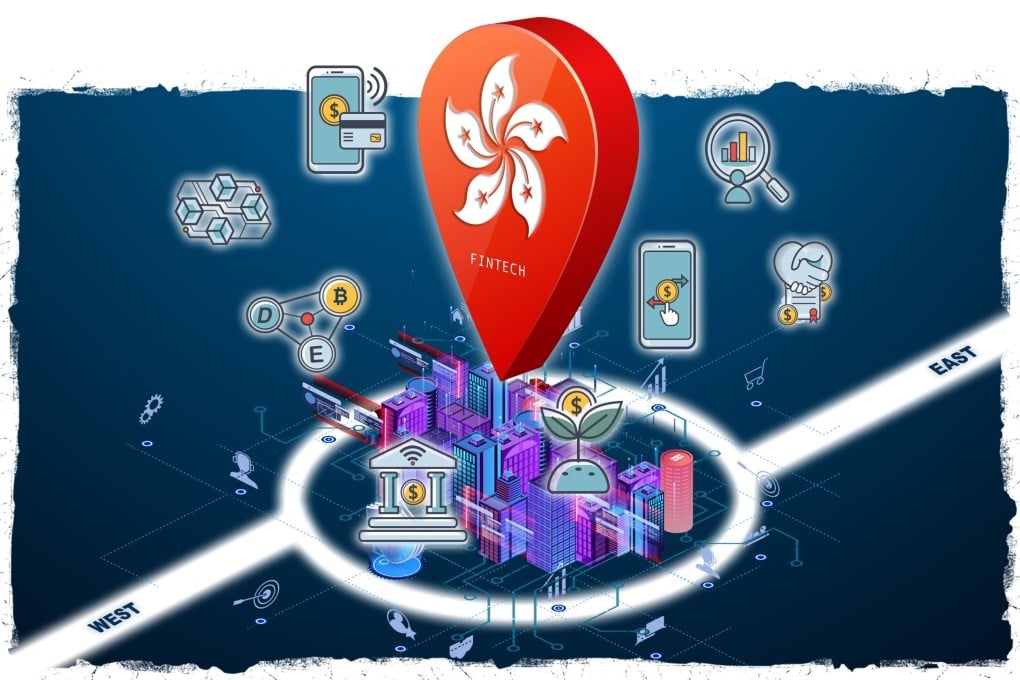Advertisement
A silent revolution is underway in Hong Kong’s fintech industry, helping city catch up to Greater Bay Area neighbours
- From faster payments to Wealth Management Connect, Hong Kong has adopted a number of measures in recent years to bolster fintech bona fides
- City’s banking apps lagged behind European counterparts in 2021 Mobile Banking Benchmark report
Reading Time:7 minutes
Why you can trust SCMP
4

As an international financial centre, Hong Kong has been surprisingly traditional when it comes to the local economy.
Shopkeepers, crammed into wardrobe-size stores filled with ceiling-high stacks of clothing, hardware or toys, track their accounts in notebooks, often putting price stickers next to their sales records. Handwritten invoices are common, and cash remains king in Asia’s second-largest financial market.
It is a different world 14 minutes away by high-speed train across the border in southern China’s technology metropolis Shenzhen. Cash is rarely used, and everything from dumplings to a luxury watch can be bought with the scan of a QR code on a smartphone.
Advertisement
Still, Hong Kong is quietly catching up to Shenzhen, as the city aspires to become a fintech innovation hub for every application from day-to-day payments to the technology pipelines that carry trillions of dollars of capital freely across the world everyday, industry leaders and government officials said.
“Hong Kong is a super connector and the most international city in China, playing a special role to connect the East and the West, and acting as the fusion reactor for fintech from the Greater Bay Area,” AMTD Group’s chairman Calvin Choi said during the 2021 Hong Kong FinTech Week conference this week.
Advertisement
A sign of the revolution underway: an electronic consumption voucher programme introduced in April to support battered retailers and restaurants added more than 3 million sign-ups to stored value facilities (SVF) in the city of 7.5 million residents. Grocers, taxi drivers and wet market vendors - among the most ardent holdouts against anything but cash - were among more than 80,000 merchants who began to accept electronic payments, according to Financial Secretary Paul Chan Mo-po. As a result, paper notebooks are being replaced by QR codes and readers for the Octopus card, Hong Kong’s very own reusable SVF, launched in 1997.
Advertisement
Select Voice
Select Speed
1.00x